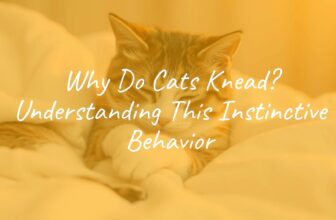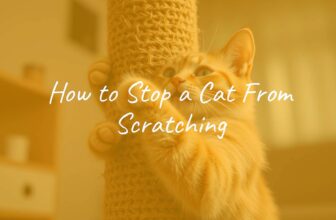
Cats meow mainly to communicate with humans. Meowing is their flexible way of getting messages across-they might greet you, ask for food or attention, or let you know something is wrong. While you may hear cats hiss or growl at each other, meowing is something cats usually do just for people. Over thousands of years living with humans, cats found that meowing works well to get our attention and help them get what they need.
Figuring out why cats meow involves looking at their history, how they interact socially, and the clever ways they have learned to live with us. It is a mix of natural behavior, habits learned over time, and a dash of cat cleverness that makes them such talkative companions.

Why Do Cats Meow?
What Is the Point of a Meow?
At its simplest, a cat’s meow is their way of talking to humans. While cats use body language, scents, and face expressions to communicate with each other, those signals do not work as well with people. Since humans do not have a strong sense of smell or fully understand cat body language, cats developed meowing to help bridge the gap and get our attention.
Cats learn quickly that meowing brings results-whether they want food, playtime, or comfort. Cats use meowing as a direct tool to get us to do what they want. For house cats, meowing is an essential way to communicate with their people.

Is Meowing a Real Type of Cat Communication?
Yes, meowing is a special form of communication for cats, mostly used when interacting with humans. Adult cats usually do not meow at other cats. Instead, they use scents, posture, and sounds like growling or yowling with each other. This makes the meow a different, people-centered behavior that cats picked up by living with humans.
Cats can change their meows in many ways. They adjust the pitch, length, and volume of their meows, learning which sounds get the best reaction from their owner. This shows that cats are smart and can fine-tune their messages to suit their human family.
How Did Cats Start Meowing at Humans?
Cats began meowing at people as they slowly became house pets over many thousands of years. Long ago, wild cats mostly kept to themselves and avoided making loud noises around other cats. Their main ways of talking were through scent and body language.
But as cats moved into homes with people, they saw that making noises got humans to notice and help them. Kittens naturally meow when hungry or cold to get their mother’s attention. Adult house cats, in turn, kept this “kitten-like” sound when dealing with humans. People tend to respond to these high-pitched, begging meows just like they do to a baby’s cry-by wanting to help. Wild adult cats that live without humans mostly stop meowing like this, which suggests it’s a people-focused behavior that cats learn.

What Kinds of Cat Meows Are There?
How Do Cats Vary Their Meows?
Cats can make different types of meows-short, long, high, low, loud, or quiet. Each kind of meow can mean something different or show how the cat feels. Your cat’s meow might sound gentle and soft or sharp and demanding, depending on what they want or how they feel.
| Type of Meow | Possible Meaning |
|---|---|
| Short, high-pitched | Greeting, “hello” |
| Long, drawn-out | Unhappy, annoyed, or worried |
| Low-pitched | Irritated or displeased |
| Mid-pitched, regular | General request (food, attention, let out) |
| Silent (mouth opens, no sound) | Meow too high for us to hear, often still a request |
Cats use these different meows to communicate a variety of feelings and needs. Paying attention to when and how your cat meows helps you understand what they want.

Do Cats Meow to Communicate with Humans?
Why Do Cats Meow at Their Owners?
Cats meow at people because they learn that this is an effective way to get a response. Since we do not read their body language or scents like other cats do, meowing becomes their best way to get through to us.
Cats keep using their kitten meow with humans since, to them, we act as their caretakers. According to experts, cats see humans as a source of food, contact, and comfort just like their mothers, and meowing helps get their needs met.
How Do Cats Use Meowing for Attention?
Cats know that meowing often makes us pay attention to them. Some cats have a whole range of special meows depending on what they want-petting, play, or just a chat. Cats who spend a lot of time alone are likely to meow more loudly when their humans return, hoping for interaction.
Cats can even adjust their meows to sound more urgent-sometimes copying the pitch and urgency of a baby’s cry-to make sure humans notice. If a certain meow always brings a treat or affection, your cat will keep using it. This turns into a give-and-take, almost like a conversation, making cats and people closer over time.
What Are the Main Reasons Cats Meow?
Cats use meowing to share all sorts of messages. Knowing the most common reasons helps owners figure out what their cat needs.
- Food or Water: Many cats meow when they are hungry or thirsty, often around meal times or when someone enters the kitchen.
- Attention or Affection: Some cats talk more when they want to be petted, played with, or simply want company.
- Pain or Discomfort: If a cat suddenly starts meowing much more, or the sound changes sharply, it might signal pain or illness and should be checked by a vet.
- Anxiety or Stress: Cats may become more vocal during stressful events like a new pet, moving house, or changes in their routine.
- Greeting: Many cats meow when their owners come home or when they run into each other at home.
- Morning or Nighttime Meowing: Some cats have regular quiet times and noisy times, often meowing early in the morning or late at night.

Why Do Kittens Meow?
Kittens are born very vocal, and their meows help them survive in their early weeks.
How Do Kittens Use Meows with Their Mothers?
Young kittens meow-often called a “mew”-to get their mother’s attention. If they’re cold, hungry, or in distress, their mew lets their mom know to help them. This simple call-and-response teaches kittens that making noise gets results-something they later continue with their human owners.
When Do Kittens Stop Meowing At Other Cats?
As kittens get older, usually after three or four weeks, they stop mewing for their mom and siblings. By four to five months, most kittens stop meowing at other cats altogether. They then rely more on body language and scent, like adult cats do. However, house cats keep using their meows with people as they become adults.
Do Cats Meow at Other Cats?
Adult cats almost never meow at each other. Instead, meowing is mainly for talking with people.
How Do Adult Cats Communicate with Other Cats?
Cats talk to each other mostly through scent, posture, and other sounds. They mark their territory with rubbing or spraying, and use their ears, tails, and bodies to show how they feel. When it comes to noise, adult cats may hiss, spit, or growl to warn others or show fear or anger. They may yowl loudly during mating times or to show dominance. These sounds are pretty different from the meows they use for humans.
Why Do Some Cats Meow More Than Others?
Some cats are just more vocal than others, and several things can affect how much they meow.
Does Breed or Personality Affect Meowing?
Certain breeds are famous for talking a lot. For example, Siamese cats are known for being especially loud and demanding, while Oriental Shorthair and Burmese cats are also quite chatty. This shows that genetics play a part.
Personality matters too. Some cats are naturally outgoing and expressive, while others are quieter. Cats that have always been around people tend to meow more than those who have lived outdoors for a long time.
Age, Sex, and Individual Differences
As cats grow older, they might meow more, especially if they have health problems or feel confused, which is common in older cats. Illnesses like overactive thyroid or kidney problems can also make cats more talkative. Female cats in heat and unneutered males may yowl for mating reasons, but otherwise, every cat creates their own way of communicating and responds to life in their unique style.

What Leads to Too Much Meowing?
A certain level of meowing is normal for most cats, but nonstop or unusual meowing could point to a problem and should be checked out.
Health and Medical Reasons
If your cat starts meowing a lot more, it could signal health problems. Older cats are especially at risk for illness-triggered meowing due to hunger, thirst, or pain. Conditions like hyperthyroidism and kidney disease are common causes. If your cat’s meowing changes suddenly, it is always best to visit the vet.
Things in the Home That Affect Meowing
Cats might meow more if they feel bored, lonely, or stressed, like when someone new moves in, their routine changes, or they lose outdoor access. When cats who used to go outside become indoor-only, they may cry at doors or windows for a while until they get used to the change.
How to Deal With Excessive Meowing
- Rule out health issues first by seeing a vet.
- If the cat meows for attention, only respond during quiet moments. Ignore them while they’re noisy.
- Feed at set times, not whenever they ask.
- If they meow to go outside but are now kept indoors, be firm and stick to your choice-they’ll adjust over time.
When Should You Worry?
It can be hard to know what is too much meowing, but any major or sudden change in your cat’s talking should be watched closely. If your cat seems upset, is always meowing, or shows other worrying signs, contact your vet for advice.
Should You Answer Your Cat’s Meows?
It is usually a good idea to respond to your cat. It builds your relationship. Still, how you respond will shape your cat’s habits, so it matters what you do.
How to Listen and React to Meows
- First, check if your cat needs something important, like water, food, or access to their litter box.
- Give attention only for quiet behavior if they meow for treats or attention, so they learn that silence, not noise, brings rewards.
- Always avoid punishing your cat for meowing. Yelling or hitting will only scare them and hurt your bond.






